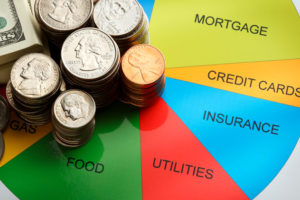
Monthly utility bills can often be a hard pill to swallow, especially when times are tight. According to some estimates, heating and cooling accounts for nearly a half of all the energy used in our homes, while a considerable amount also goes towards water consumption. With this in mind, I offer you several tips that will allow you not only to lower your utilities, but to protect the environment as well.
Attic Insulation
It is no secret that attics are where most of our home’s heat escapes to. If you wonder why this happens, you should know that heat rises, and the majority of houses lack insulation to keep it from getting out, so it simply floats. You can save as much as 20% on your heating and cooling expanses by effectively insulating your house. When it comes to insulation materials, I would suggest fiberglass, as it is both affordable and easy to install. If you have worries about installing it yourself, just do a quick search online and you will find an abundance of good DIY tutorials that will explain you the entire process.
Water Saving Devices
Inexpensive low-flow shower heads which automatically stop a running shower when it becomes sufficiently warm are easy to install. Instead of installing a new device, you can also add converters to existing shower heads, while all of your taps should have aerators. If a device is classified as “low-flow”, it means that it uses less than ten liters of water a minute. With regard to toilets, consider putting a float booster in the toilet tank in order to reduce water waste. This affordable device will save you roughly 40 liters of water each day. Alternatively, you might want to install a brand new, low-flush toilet, as it uses less than 7 liters per flush in place of the common 10 to 18 liters.
Water Heater Insulation
If case you have an older water heater system, you can save up to 10% on your water heating expanses just by properly insulating it. In this way, you can prevent standby heat loss by as much as 45%. Simply by wrapping up the hot water tank you’ll be heating your water much more efficiently, and this can pay off big time in the long run.
Dishwasher and Washing Machine
If you want to ensure optimum water conservation, you should fully load your dishwashers and washing machines, avoiding partial loads whenever possible. When it comes to washing machines, forget about the permanent press cycle, as the extra rinse can consume an additional 20 liters of water. If you are considering buying a new washing machine, bear in mind that a front-loading machine consumes considerably less water than its top-loading counterpart.
Food Preparation
Heating up your oven consumes a lot of energy, so if you’re preparing a simple, fast dish, use your toaster oven instead. Owing to a considerably smaller area that needs to be heated, toaster ovens enable much quicker cooking time. You should know that you can even bake pies and cookies in it. Microwaves are also a good choice, as they use significantly less energy than conventional ovens or stove tops.



